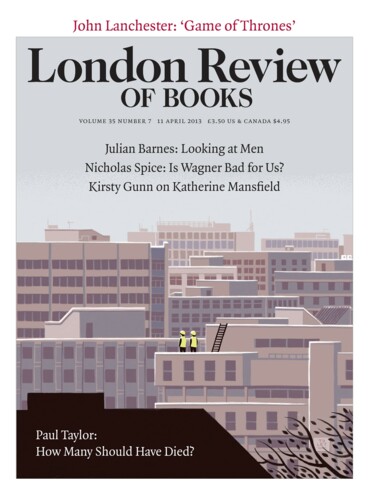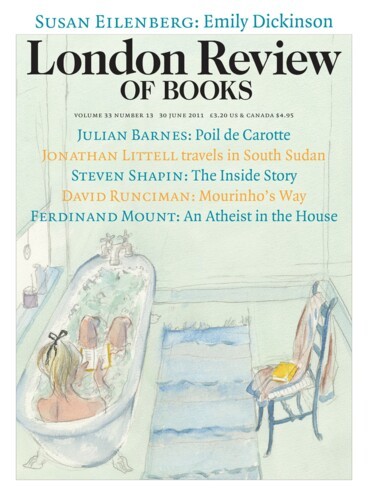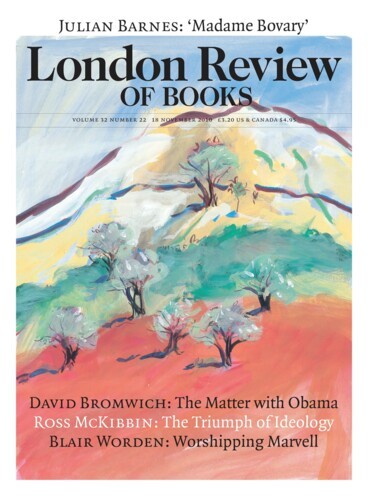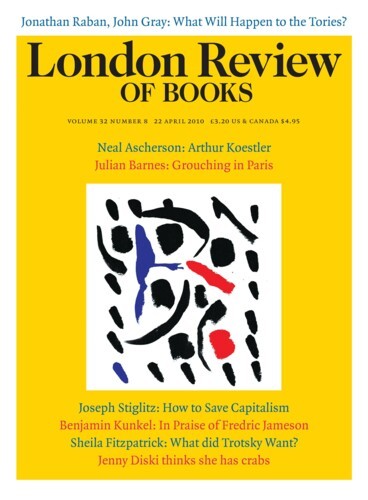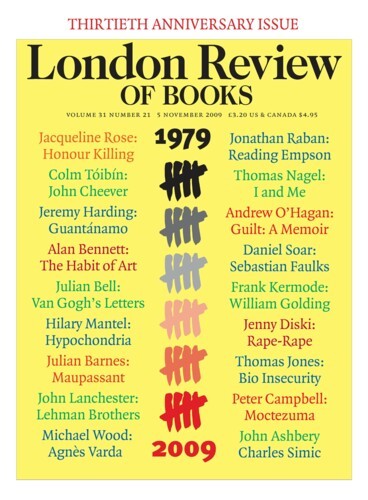High Anxiety: Fantin-Latour
Julian Barnes, 11 April 2013
Thirty-four men, 20 of them standing, 14 sitting, spread across four paintings and 21 years. Almost all are sombrely dressed, in the black frock coat worn by bourgeois and artist alike in the France of their day; the least sartorial departure – a pair of light trousers, a coat of proletarian grey, a white painter’s smock – startles. The spaces in which these men are depicted...
